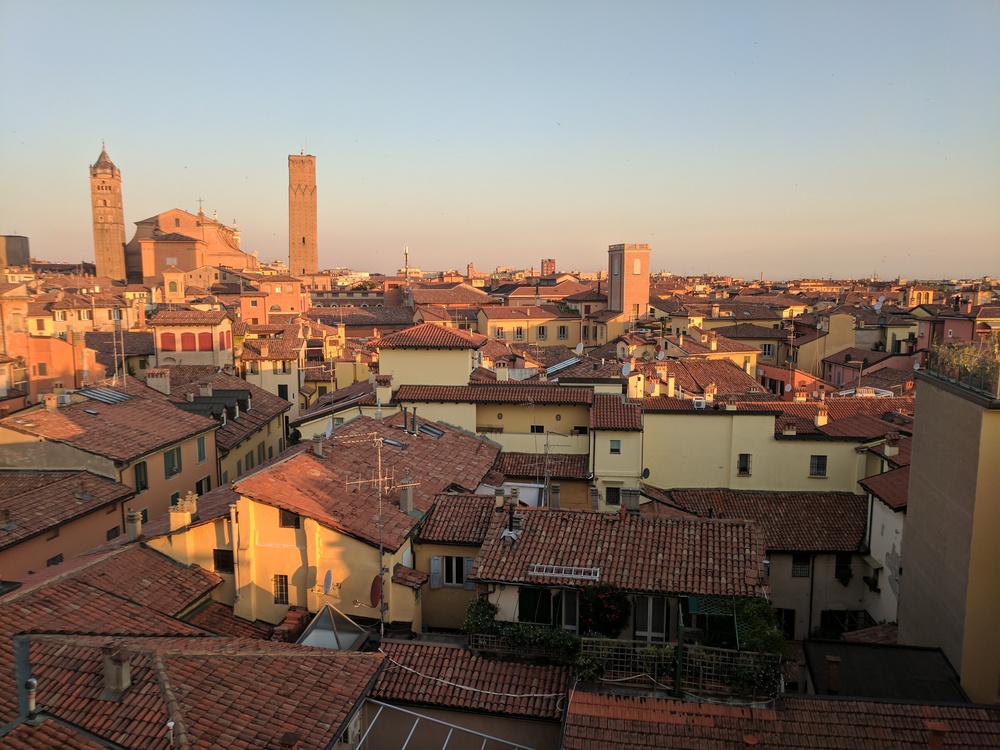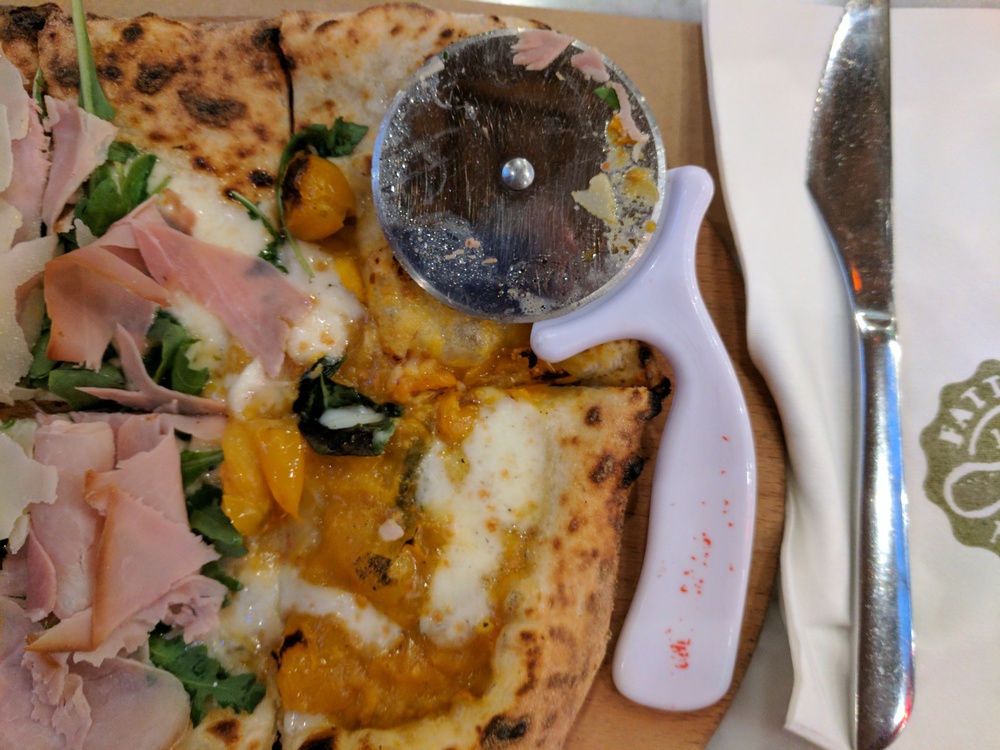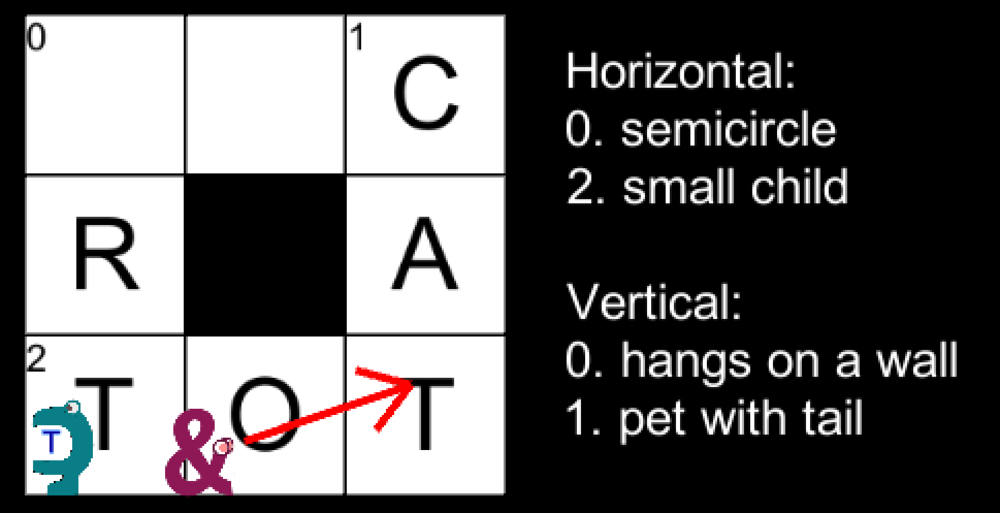ITiCSE 2017 in Italy
At the end of each ITiCSE working group I’ve been involved in, I swear I will never do another. Writing a lengthy report with a bunch of other humans is incredibly exhausting, and the process usually causes me to lose faith in mankind. But inevitably, I sign up again the next year, because I can’t think of a better way to experience an academic conference and to grow as a human. It doesn’t hurt that ITiCSE is usually held in another country. This year it was in Italy.
Last year my broken Spanish made my Peruvian ITiCSE a lot more fun. In order to bring some broken Italian with me this year, I dove into Duolingo about six months ago. Unfortunately, I made my goal not learning Italian, but getting my tree all golden. I learned enough to make for some very enjoyable and sometimes awkward conversations, but I’m pretty certain it will all be washed away quickly.
I landed in Bologna a day early, figuring it would take me that long to figure out how to get from the airport to the hotel. However, I needn’t have worried. The conference co-chair was on my flight, and he was getting picked up by the other conference co-chair, the one that actually lives in Bologna. They graciously allowed me to bum a ride. Grazie mille piu uno, Renzo! My first meal was a Bismark pizza, which was topped with bacon and a runny egg.

The Hotel San Donato was my home for a week. The staff there helped me learn the way of Italy. Like the custom that when you leave the hotel, you leave your key. I didn’t know that. When you return, you just give your room number, and they hand you your key. No identification is needed. As far as I can tell, there’s nothing to stop you from getting the key to someone else’s room. I think the biggest difference between Americans and non-Americans is that Americans have incredible imaginations for all the possible crimes that a man may commit, and they work tirelessly to build up systems that will keep that man from completing his evil deed.

The conference itself was held at Universita di Bologna, which is the oldest degree-granting institution in the world. Hopefully coding bootcamps and MOOCs don’t mess this up. Unfortunately, walking across campus was not nearly as inspiring as one would expect—for a couple of reasons.
First, graffiti adorned every wall, really violating any feelings of antiquity. I am reminded of the game Darkest of Days made by some alumni from a university I used to teach at. The game combines war with time travel, letting you bring weapons from one time period to another. Imagine the Civil War, but where one side has automatic rifles. Now imagine spray paint on buildings built centuries ago.
Second, everyone smoked. Even the dogs. As someone who grew up with a father who smoked and drank and died young, I had a hard time enjoying the sidewalks and restaurants and any place with people. Actually, the mornings were pretty good, because Italians tend to sleep in. If they are smoking then, they are at least in their beds. I was able to go on lots of runs through the old walled city and breathe freely.

Each day started off with a croissant and ended in gelato. In between was a lot of bread and cheese. We asked a number of folks about gelato al pomodoro—tomato gelato—but that question usually ended the conversation. I had a lot of pizza. But I soon found myself missing vegetables and eggs. A nice man in a market sold me ten plums for 2 euros.

Our working group planned to make a game to teach pointers. We spent a considerable time deliberating over what this should look like. I wanted a very explicit metaphor that directly matched the game mechanics to the operations we apply to pointers. The previous week my son had been turning crossword puzzles into levels for platformer games, and this inspired me to pursue a mashup between crossword puzzles and a cooperative platformer. The rest of my group wasn’t nearly as interested in this theme as I was, and the group ended up choosing a Diner Dash-style theme of delivering food and drink between chunks of memory. Given that another group member is spearheading the development, I am fine with this direction.

Working groups are expected to produce a report on their topic. At some point during the conference, each group gets up and gives a summary of their work so far to all the attendees. One group explicitly asked the audience what they’d like to see in the report. This appeal seemed disingenuous to me. I would never ask such a question, because I do not participate in a working group to prepare a document for others. Really, I expect the kind of folks that would read such a report are the ones already in the working group. My participation is much more selfish. I want the opportunity to think hard about a topic out loud with others. Working groups are not about me having an impact on the world, but on the world having an impact on me.
Nevertheless, I am happy to say that our group is producing both a playable open-source game and a report.
One of the implicit undercurrents of the conference was that computer science educators are too much in love with tools. We build too many things, people seemed to say, and don’t posit enough theories and models of learning. As a toolsmith, I bristle at this accusation. Of course they are right, but what we need is to use the tools to establish our theories and models. I fear that I just don’t have the background in educational psychology to go beyond software development. And so far I have failed at starting any collaborations with folks that do have the background.
The opening keynote of the conference was about women in computer science in the Arab world. Sana Odeh contrasted the situation in Algeria, Saudia Arabia, and other Arab countries, where women are the majority population in STEM disciplines, to the United States, Australia, and Canada, where are women are the minority. She discounted any depictions of Arab women that paint them as repressed objects of pity. I think a few people (me) in the audience left feeling confused about the status of women in these countries.
A year ago, a former colleague invited me to submit something to COMPSAC 2017, which just happened to be in Turin and to overlap ITiCSE by one day. A student and I submitted a paper arguing that blocks and text languages really can’t be adequately compared right now, not until we can control for some of their major differences. The paper was accepted, and I was able to sneak out a bit early from ITiCSE to catch a train from Bologna to Turin to go present this paper.
Unlike ITiCSE, which is all about computer science education, this second conference lacked a cohesive identity. That’s not necessarily a problem, but most of the tracks were outside my areas of interest and expertise. I utilized my time to work on our game and add some features to Madeup that my student collaborators requested.
After all the work was done, my wife flew in. We spent a few days together in Turin. We called ourselves Ameridogs because the real word is americani, and cani means dogs. Ameridogs like us are not so common in Turin. They head to places like Rome and Venice. A girl at a bus stop was very excited to meet us. She was eager to learn a useful language like English, she told us, and that her Italian will do her no good.

One of the days was spent hiking in Gran Paradiso National Park, and getting soaked in a storm during our hasty descent. We stayed at a bed and breakfast that was just far enough away from everything that it added some stress to our days. The bus system is not friendly to the uninitiated. We did manage to get passes that let us take bikes from over 100 different stations around the city. These were free for 30-minute stretches. Our hostess lent us her bikes for a longer day of riding along the River Po, which would have been fabulous had the pedal not fallen off while we were still about two hours away from her home. The threading had stripped, and I ended up biking the rest of the way home very awkwardly with only one pedal.

We eventually made it home on plane that had both of its wings, but I appeared to have been flagged for something by airport security. I had to wait a very long time in customs. To pass the time, I watched a number of people get berated for having undeclared items in their luggage. Eventually a man asked me if I had any tattoos. I said no, and the conversation ended shortly thereafter. I was given no indication of the danger I presented.
Will I head to ITiCSE next year? Right now, the answer is no.